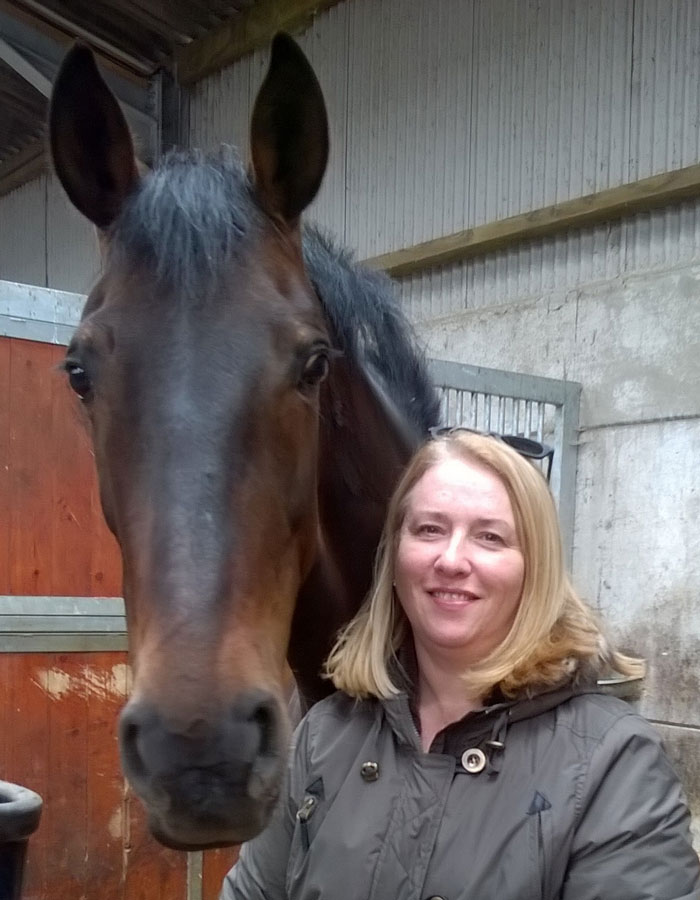Jan Gordon is the Adult Congenital Heart Disease (ACHD) Clinical Nurse Specialist at the Royal Victoria Hospital. Jan has been an invaluable support to the Children’s Heartbeat Trust helping us with her time, advice and guidance as we continue to develop our youth services. Jan has been on our last two Summer Blast teens residential trips and spoke at our recent Transition Event.
When I was 18 I didn’t have a clue what I wanted to do and ended up taking off to Los Angeles in America to be a nanny to two little boys. Before I had left I had applied for lots of different jobs and after returning home after six months I found I had an interview for nursing which I attended and got into! Studying at the Southern School of Nursing I was selected for the general and psychiatry combined course which led to me becoming a Registered Mental Nurse. From this, I got a job in female surgical in Lagan valley before moving to children’s nursing which was then based in the Belfast City Hospital. I spent two years there and loved it so much that I trained as a Registered Sick Children’s Nurse. At this point I worked between Clark Clinic and relief shifts in Paediatric ICU. Then my ideal job combining these two areas came up in Cardiac ICU working with the surgeon, Mr Gladstone to look after the children receiving surgery. I was the first paediatric nurse to work in the Cardiac ICU which proved invaluable when within 2 years I became a Sister and took the lead in paediatric congenital surgery. Fast forward 20 years to 1999 and my three children were teenagers and a lot more demanding of my time! I was looking for a more regular shift pattern so I could spend more time with them when luckily the ACHD nurse specialist post came up. This was a lovely link to working again with all the children I had looked after in surgery as teenagers and young adults. I have been in this post full time since then.
It’s probably easier to describe what a typical week looks like as that has more structure than the days! We hold an ACHD clinic on Monday, surgical ACHD on a Tuesday, another ACHD clinic on a Wednesday, Thursdays are home visits and Friday is the day I try to contact any patients for follow up post discharge or who have been in touch with concerns, and we are beginning to offer Transition clinics on a Friday too. Each day is punctuated with calls to our advice line and lots of administration. As the service continues to grow, my daily work changes and develops regularly. I was in post three years before Dr Lockhart joined as the Adult Congenital Cardiologist so I did have a great opportunity to ground in the service with lots of help from the paediatric cardiology team. This was definitely a steep learning curve but from the very beginning it has been a hugely rewarding job. From the very outset it was clear how needed this specialist service was for these patients and families and sometimes I wonder what happened before this was in place. The service has continued to evolve in response to needs and I also spend time teaching colleagues, visiting schools and formal teaching nationally and internationally. There is a lot of pressure on my time and ideally we would have a team to respond to all of the needs of this ever growing group of patients. However the specialty is getting more recognition and expanding, with a network of specialist nurses across the UK involved in setting standards and providing educational pathways for any other nurses who want to work with complex group of patients and families in the future.
Transition clinics have evolved from the need for proper transition for children to the adult services. Becoming an adult is a very vulnerable time for young people as it involves a change in life style when at 18 they are no longer legally under their parents control and lots of temptations and choices are in front of them. It is important that by that stage our teenagers are knowledgeable about their own condition, the consequences of risk taking behaviours and have ownership of their treatment. The Transition clinics generally run from 14 – 16 and the aim is to engage and enable at an early stage with the teenagers before larger life changes come into play. The transition clinics are relatively new and currently running once a month with four patients at each session so that we can properly engage and understand any issues coming through. Hopefully we will also have a new nurse specialist in place soon who will be able to spend time developing this important and valuable service.
I have never had a job like this one before and I can honestly say that every element of it is satisfying both personally and professionally. One of the things that is particularly satisfying is working with our female patients who have always thought they could never have children and to be able to help them actually have a baby. I have been privileged to be in the maternity ward at some of these births and some of my most cherished memories are of the joy on their faces when they see their babies. Ultimately it’s the very unique and special relationships you form with patients and families that makes it such a rewarding job.
I am married to Johnny and we have just celebrated our 24th wedding anniversary. We have three children – Jack (23), Michael (21) and Claire (18). I also have two dogs and a horse which keep me busy. Clare is involved in show jumping and competes nationally so I spend a lot of time travelling with her team which is pretty full on but great fun!

